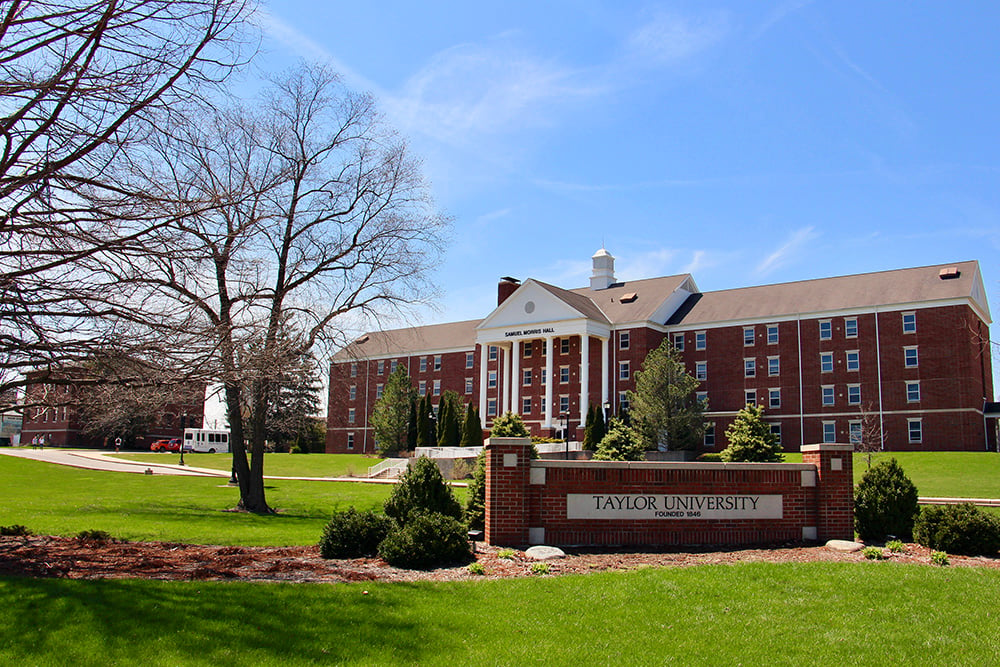(RNS) — Taylor University, a leading evangelical institution about an hour northeast of Indianapolis, received $30 million to bolster local infrastructure, the university announced Tuesday (Jan. 2). The grant, which is the largest in the university’s history, is funded by Lilly Endowment as part of its College and Community Collaboration initiative, which also awarded grants ranging in size to five other Indiana colleges and universities.
“For us, this is about much more than economic and community development; it’s about living into our unique calling as a place that seeks to honor God in all things,” Taylor University president Michael Lindsay told Religion News Service via email.
With its brick buildings and grassy slopes, Taylor University’s campus is perhaps the most distinctive destination in rural Upland, Indiana. The town’s 3 square miles also include a small downtown with a café, library, town hall and a Subway restaurant, but the community lacks housing and hospitality options, and Main Street, the mile stretch connecting campus and downtown, features cracked sidewalks, poor lighting and potholed roads.
In February 2023, Lilly Endowment announced that it would welcome 35 eligible Indiana colleges and universities to participate in the two-phase College and Community Collaboration. Phase one invited institutions to apply for noncompetitive planning grants of up to $250,000. That initial grant allowed Taylor University to conduct resident surveys and host two dozen community gatherings. Roughly 25% of Upland residents were involved in some part of the planning process, Lindsay told RNS, and a task force of community leaders also partnered with the university to develop the proposal.
“In designing their proposed projects, it was evident that these colleges and universities engaged a wide-ranging group of community stakeholders to imagine and develop creative solutions to pressing campus and community needs,” said Jennett M. Hill, president of Lilly Endowment, in a press release announcing the six grantees. “The institutions awarded grants submitted proposals that revealed robust collaborative efforts reflective of the institutions’ willingness to learn from not only campus colleagues but from local residents and businesses to help shape projects with promising potential to enhance the quality of life on their campuses and in their local communities.”
Ongoing collaborations with the Upland community will be led by a new director at the university, who will partner with an advisory board of Upland residents to execute the Main Street Mile Initiative.
“This is a model we saw at Notre Dame and are excited to see this come to fruition here,” said Lindsay.
In 2000, Notre Dame responded to the deterioration of the surrounding neighborhood by collaborating with other local institutions to fund a redevelopment plan. Twenty years and millions of dollars later, a new commercial district in South Bend’s Northeast neighborhood boasts two new hotels, chain stores, restaurants and over 900 new apartments and town homes.
“We believe Taylor and Upland have the potential to become a national model for how a small university with an engaged community can work together for significant economic and community development,” said Lindsay. Recalling Jeremiah 29, Lindsay added that the university’s Christian faith compels it to “seek the peace and prosperity of the city to which you have been carried … because if it prospers, you too will prosper.”
Religion News Service receives funding from Lilly Endowment through the Religion News Foundation.



















